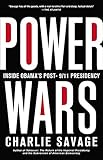James Denselow

James Denselow is a writer on Middle East politics and security issues and a Director of the New Diplomacy Platform (NDP). He has worked extensively in the Middle East, including research for the foreign policy think tank Chatham House, writing and reporting for several media publications, and communications and advocacy work with international NGOs.
He is a contributing author to "An Iraq of Its Regions: Cornerstones of a Federal Democracy?" and "America and Iraq: Policy-Making, Intervention and Regional Politics Since 1958" and has advised the British Government on its policy toward the Arab Spring. He is a Research Associate at the Foreign Policy Centre (FPC) and a Fellow at the Centre for Syrian Studies (CSS).



































